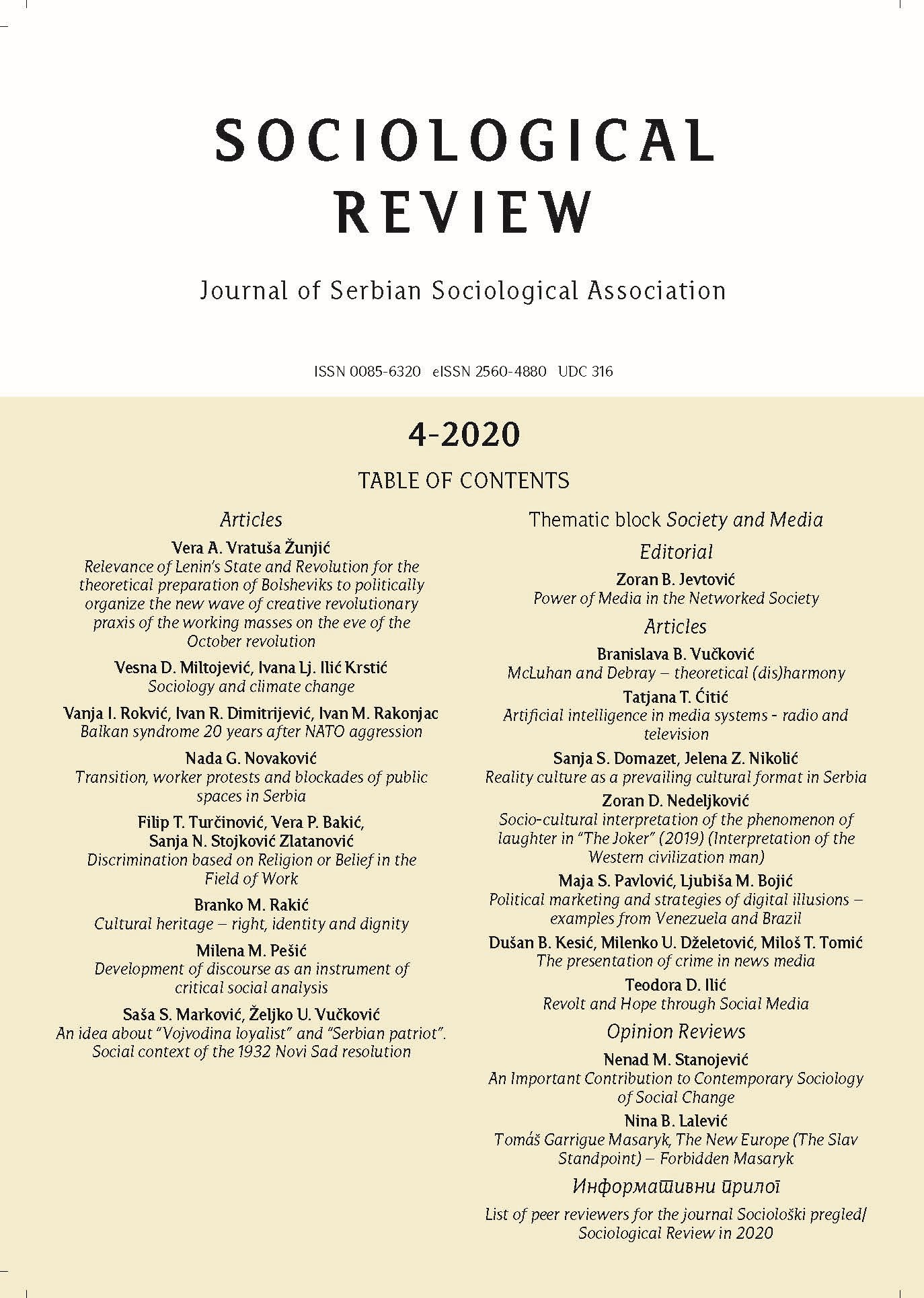An idea about “Vojvodina loyalist” and “Serbian patriot”. Social context of the 1932 Novi Sad resolution
An idea about “Vojvodina loyalist” and “Serbian patriot”. Social context of the 1932 Novi Sad resolution
Author(s): Saša S. Marković, Željko U. VučkovićSubject(s): Social Sciences, Sociology, Social differentiation, Sociology of Politics, Identity of Collectives
Published by: Српско социолошко друштво
Keywords: politics;society;ideas;democracy;interpretations;
Summary/Abstract: The area of today’s Vojvodina in the Kingdom of Yugoslavia was the scene of the development of quite dynamic social and political ideas for the purpose of ensuring a better-quality approach to the constitutional and national questions. After the Decision on the accession of Vojvodina to the Kingdom of Serbia and subsequently the Decision on the unification of Yugoslavia, issued by the Great National Assembly on 25th November 1918, the national zeal was gradually replaced by realistic political ideas with the intention of finding the social identity of Vojvodina in the newly-created Yugoslav circumstances. In the 1918-1929 period of parliamentarism, these ideas had an exceptionally dynamic course and were directed towards democratic tolerance, but after the introduction of the 6th January Dictatorship in 1929, the political and party life was forbidden. Due to the new constitutional circumstances and political consolidation, Alexander Karađorđević, certain of the success of his state politics, tacitly allowed the restoration of the party life. The Sombor Resolution as well as the Novi Sad Resolution, both enacted in 1932, played the role of the moderator of the party and political life of the opposition parties with an extremely active attitude towards social circumstances dominated by the state party.
Journal: Социолошки преглед
- Issue Year: 54/2020
- Issue No: 4
- Page Range: 1279-1297
- Page Count: 19
- Language: English, Serbian

